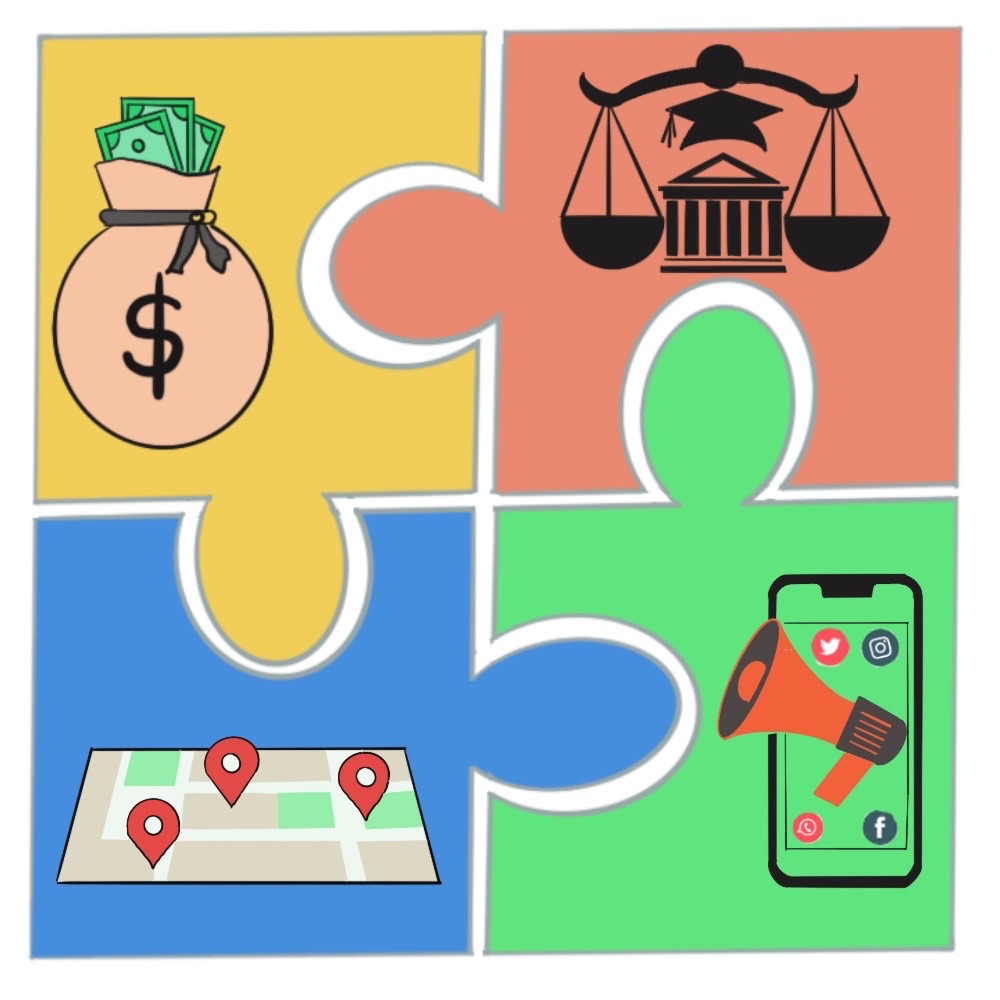According to sba.gov only half of the American small businesses flourished for five years or longer. 4 Why do so many first-time entrepreneurs flounder? There is a multitude of elements of the entrepreneurial journey that can mitigate one’s chances of success. One poignant factor is people simply not understanding the basic rules of business.
Fear not! A novice understanding of business and professional culture does not necessarily mean that you are destined to fail, nor should you relinquish your aspirations of becoming an entrepreneur. There is a multitude of opportunities, either free or affordably priced, which you can take advantage of to gain the vital insight and business savvy required of entrepreneurship. Further, you can jump-start your business education with these four tips.
Money is Important.
It can be said that business is nothing but a vanity project unless it turns a profit. The book Spark & Hustle notes that new entrepreneurs should calculate their basic expenses first. These include but are not limited to:
- Staff
- Utilities
- Office supplies
- Taxes
- Business licenses
Following, the authors suggested “…research to get a range of price options for each, then chip away at any overhead expense that isn’t essential.”
You must also consider and determine the cost of your product based on a detailed analysis that begins with the cost of overhead, production, etc. Do not undervalue yourself or your product/services. There are many ways to achieve a set price, but a good starting formula is to determine your product/service capacity per week and multiply that by 50 weeks. This is if you want to work full-time rather than run a business on the side.
Finally, you should consider additional funding options if you really need them. These include but are not limited to the following:
- Savings accounts
- Family loans (Write and sign an agreement before you ask a relative for money, though.)
- Bank loans (You will need good credit to do this.)
- Crowdfunding websites (These are sites where people contribute money because they love your vision.)
Some new entrepreneurs assume it takes years to make money. Though this might prove true for some, it is heavily dependent on the context in which your business (and its services or products) was cultivated. Do not let this discourage you, but do not allow your business to turn into a hobby. Aim to turn a profit on your first day. 2

Market Well.
Good marketing is key to starting any business, and there are a variety of engaging and creative ways to reach possible clientele.
Considering the amount of capital it can take just to get you to the opening day, it may not always be cost-effective for a new business to use marketing platforms such as television, newspaper, and/or popular magazine advertising. There are several cheaper ways to get the word out, though. What’s Stopping You? notes that good P.R. techniques include press releases, newsletters, media coverage, etc. 1
Another great tool for new entrepreneurs is the web. Internet methods include pay-per-click advertising, blogging, and social networking.
Additional avenues of marketing, which might connect you with your local clientele, is via radio! Connecting your product with a familiar voice can resonate more deeply with potential customers than through print or digital marketing. 3
Get Legal Assistance.
It is good practice to ensure you have some sort of legal aid available. Granted, the early stages of developing your business might not warrant the ability to have a lawyer on retainer, but establishing a working relationship with a single specialized firm is a good start. In a perfect world, a business conflict would be nonexistent. However, a majority of the global culture is based on a capitalist system, and there are many situations when it is necessary to have an attorney. Yet how exactly do you find one?
It is strongly suggested you do not take an easy or haphazard path to find legal aid because legal assistance can prove to be vital to the survival of your business venture. You can easily find thousands upon thousands of lawyers on the internet, in newspapers, and in commercials, but not all are the same. Find one who fits your needs and the needs of your business. For example, a research company would probably look for a lawyer specializing in the intellectual property over one specializing in real estate.
According to Nolo’s The Small Business Start-Up Kit, “The best way to find a good lawyer is to get a personal referral, such as from your accountant…Even better is a referral from someone who owns a business…similar to yours.” 3

Location, Location, Location.
Your business can blossom or wither, depending on where you are located. Location is irrelevant to some entrepreneurs, such as professional gardeners or people who work from home. However, it is very important for others.
If location is vital to you, you should consider a couple of things:
- Traffic (Do you want customers to come in on foot or drive there?)
- Accessibility (Can your customers park? If so, where? Do employees have parking places?)
- Competitors (You won’t do well if you are a small bookstore in the same strip as a large corporate book chain.)
- Zoning laws (These regulate the types of businesses allowed and forbid certain activities in certain places. Make sure yours complies with them.)
There are also factors such as utility costs and appearance. People will not flock to a place they consider an eyesore. 3
New entrepreneurs have a lot to learn. Although these tips will not teach you how to run a successful business overnight, they will give you a good head start. Do your homework if you are ambitious, and you will flourish.
Originally published in the Zealousness e-magazine in 2018. Revised and updated in 2022. Read more personal development related articles on Zealousness blog Personal Development – iN Education Inc. (ineducationonline.org)
Sources:
- Barringer, Bruce R., and R. Duane Ireland. What’s Stopping You? Shatter the 9 Most Common Myths Keeping You from Starting Your Own Business. Upper Saddle River, NJ: FT Press, 2008.
- Johnson, Tory. Spark & Hustle: Launch and Grow Your Small Business Now. New York, NY: Berkley Books, 2012.
- Pakroo, Peri, and Marcia Stewart. The Small Business Start-up Kit: A Step-by-step Legal Guide. Berkeley, CA: Nolo, 2018.
- SBA Office of Advocacy. Frequently Asked Questions. PDF. Sba.gov, September 2012.























